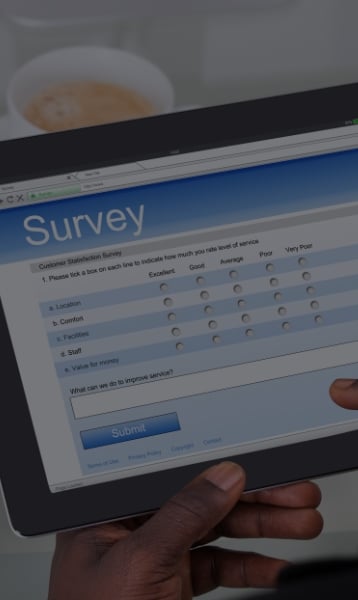The benchmarking portal gives you access to all reports available for STD, LTD, FML & WC.
Remote and Hybrid Work Associated with Higher Rates of Anxiety and Depression, According to Integrated Benefits Institute Analysis


Jennifer Santisi
Overall Anxiety and Depression Rates Decreasing, While Mental Health Medication Rates Increasing
To help employers better understand and support the mental health needs of their employees, health and productivity research non-profit Integrated Benefits Institute (IBI) conducted an analysis of the impact of the pandemic on mental health.
According to IBI’s analysis, fully remote (40%) and hybrid work (38%) is associated with an increased likelihood of anxiety and depression symptoms compared to in-person (35%). The rate of individuals taking a mental health prescription medication has increased from 20% to 22%, and the unmet need for counseling has also increased from 12% to 14%. However, overall symptoms of anxiety or depression have declined from 40% during the height of the pandemic to 35% during our study period (7/21-8/22).
“This report is a thorough examination of a wide-spread mental health issue – experiences of anxiety and depression symptoms. Such experiences can range from mild to severe, and are an important cause of presenteeism, sickness absence, and disability,” said IBI Director of Research Candace Nelson, ScD, MA. “This research was conducted to provide employers comprehensive and timely facts, so they can better target programs and benefits addressing mental health.”
IBI analyzed data from the Household Pulse Survey, an online survey conducted by the US Census Bureau to determine how households were impacted by the pandemic. IBI partnered with Elevance Health (formerly Anthem) to analyze claims data related to mental health.
Additional findings include:
- Rates of anxiety and depression were higher in women (38%) than men (33%)
- Individuals with lower income and those who had difficulty meeting living expenses had higher rates of depression and anxiety symptoms
- Respondents who reported they were not currently working due to illness or caregiving responsibilities were more likely to report anxiety/depression
- Having children in the household seems to have a beneficial effect on mental health, especially for those who are not currently working
- Individuals with a recent COVID infection, a COVID infection with moderate or severe symptoms, and long-COVID, are more likely to report symptoms of anxiety or depression
To put all this information into context, IBI spoke with human resource executives at two large national and international companies, ArcBest and Boeing, about workplace mental health support. Key themes emerged:
- Increase efforts and interest in mental healthcare; e.g., ensure equitable access to care, and offer virtual options.
- Help employees coordinate their mental healthcare with their physical healthcare-- neglecting chronic conditions can exacerbate mental health conditions.
- Provide culturally competent mental healthcare that workers can identify with.
- Improve workplace culture and reduce stigma with peer-support networks and education.
- Facilitate peer-support as an important part of mental wellbeing.
For more information the report and infographic are available upon request, please contact Jennifer Santisi at jsantisi@ibiweb.org.
About Integrated Benefits Institute
The Integrated Benefit Institute’s independent research, industry-leading tools and data resources help companies link health-related programs to the outcomes that maximize the contributions of people to productivity and business performance. Founded in 1995, IBI is a national nonprofit research organization and business association serving 1,200 employer and supplier members and their 22 million employees. For additional information, please visit www.ibiweb.org and follow us on Twitter and LinkedIn.
- December 2024 (1)
- November 2024 (1)
- July 2024 (1)
- June 2024 (1)
- March 2024 (1)
- February 2024 (1)
- January 2024 (1)
- December 2023 (1)
- November 2023 (1)
- August 2023 (1)
- July 2023 (1)
- May 2023 (2)
- February 2023 (2)
- January 2023 (2)
- November 2022 (1)
- October 2022 (1)
- September 2022 (1)
- March 2022 (1)
- February 2022 (1)
- January 2022 (1)
- December 2021 (1)
- September 2021 (1)
- April 2021 (2)
- December 2020 (1)
- October 2020 (1)
- September 2020 (2)
- August 2020 (2)
- July 2020 (1)
- April 2020 (1)
- March 2020 (1)
- November 2019 (1)
- September 2019 (1)
- July 2019 (1)
- June 2019 (2)
- May 2019 (1)
- April 2019 (1)
- February 2019 (1)
- November 2018 (1)
- September 2018 (1)
- August 2018 (1)
- June 2018 (1)
- March 2018 (1)
- March 2017 (1)
- February 2017 (2)
- Absence (1)
- Absence Management (1)
- analytics (1)
- Behavioral Health (1)
- Benchmarking (2)
- Benchmarking Analytics (1)
- Benefit Design (2)
- Benefits + Plan Design (2)
- Blog (1)
- Business Performance (1)
- CDHP (1)
- CFO Survey (2)
- COVID-19 (6)
- Depression (3)
- director (1)
- Disability Leave (7)
- Extreme Weather (2)
- Family + Parental Leave (3)
- FMLA (2)
- Health + Productivity Management (3)
- Healthcare (1)
- Healthcare Costs (2)
- lost time (1)
- Manage Absence (2)
- Medication Adherence (1)
- Mental + Emotional Health (4)
- Mental Health (2)
- new hire (1)
- Parental / Family Leave (1)
- Patient-Centered (1)
- Press Releases (50)
- Preventive Care (1)
- Productivity (3)
- Research (2)
- Research Report (1)
- Return to Work (1)
- Sick Leave (2)
- Telehealth (1)
- Telemedicine (1)
- Worker's Compensation (1)
- Workplace Health Programs (1)




























